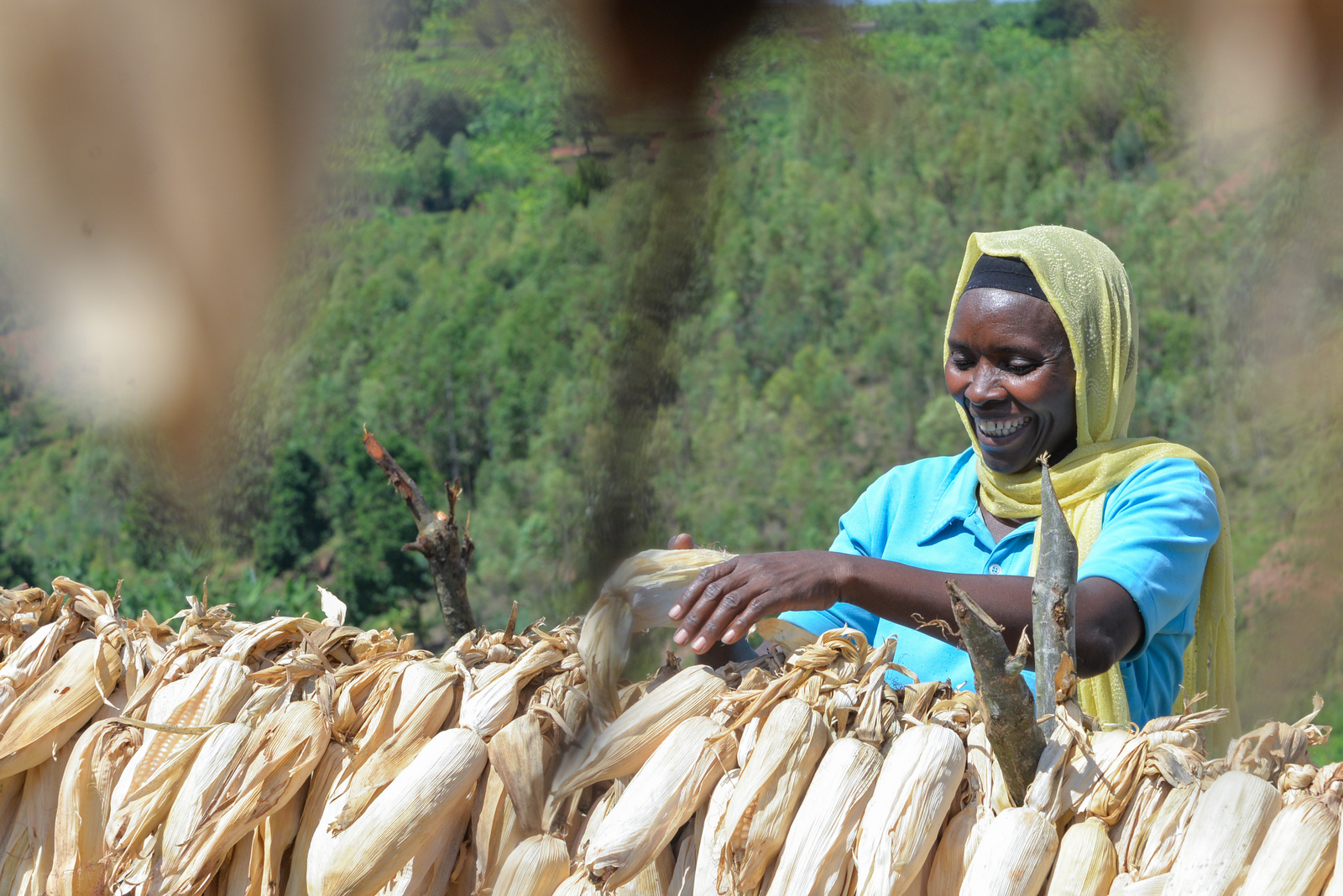Rwanda: Refugees and Host Communities join forces in the Misizi Marshland to improve their livelihoods

Rwanda: Refugees and Host Communities join forces in the Misizi Marshland to improve their livelihoods
“I only took my wife and two children with me when I fled my home country. I left everything behind. I had to start from scratch to improve my family’s living conditions, but it was not easy,” Muhizi Kayonde Pierre said.
Muhizi is the vice-president of the Cooperative of Misizi Marshland farmers in Rwanda’s Mugombwa sector, in Gisagara district. The 39 year old Congolese refugee now has four children to support, and a farming initiative has changed their lives.
Thanks to funding from IKEA Foundation, the UN Refugee Agency and partners are supporting an agricultural project in the Misizi marshland, which gives 1,427 host community and Congolese refugee farmers the opportunity to work.
“We are grateful for the assistance we are provided in camps, such as food, soap and sanitary items for women, access to basic education and health facilities. But our children need school uniforms, complementary food, and my family needs clothes. This requires us to get up and work,” Muhizi said.
Earlier this year, the farmers produced more than 101 tonnes of maize, of which 37 tonnes were sold to the Africa Improved Food company. The remaining amount enabled the farmers to feed their families.
The initiative also helps refugees like Muhizi transition from life-saving to life-building activities. Not only are they able to make a living and contribute to the local economy, they are also able to successfully integrate into their new community.
Niyitegeka Francine, who is 53 years old, is from Rwanda. She lives in Mugombwa sector with her husband and seven children.
“Some of us have been growing crops in this wetland for 30 years. In the beginning we assumed that refugees were going to take over the marshland. After discussions, we are living peacefully together with our Congolese neighbors. Before, the camp was only for refugees, but from the time when this project brought social cohesion, we all belong to Mugombwa,” she said.
Through the project, farmers are provided tools for farming activities, such as portable modern solar-powered irrigation pumps, hoes, fertilizer, seeds and pesticides. The majority also receive a daily cash incentive, which is in line with the Rwandan government-supported daily wage program for Rwandans in the lower socio-economic category.
According to Francine, this project has brought remarkable changes in their agricultural techniques, livelihoods, and their lives in general.
“This project is promising: we are given incentive while we are working in our own plots. We formed one cooperative where refugees and nationals have equal rights, and we have started informal saving groups among refugees and nationals. This is really heartening and we are grateful,” she said.
==
In line with the Comprehensive Refugee Response Framework which is being rolled out in Rwanda, the Misizi marshland project embraces the approach of including refugees in their host community. As part of this project, refugees are benefiting from supported access to the agricultural, labour and commercial markets, where they, jointly with Rwandan farmers, are able to build their skills and contribute to the local economy while becoming self-reliant and contributing towards local development goals. This project is funded by IKEA Foundation and implemented jointly with UNHCR, the World Food Programme (WFP), the Food and Agriculture Organization (FAO), the Government of Rwanda (MINEMA) and local authorities.






